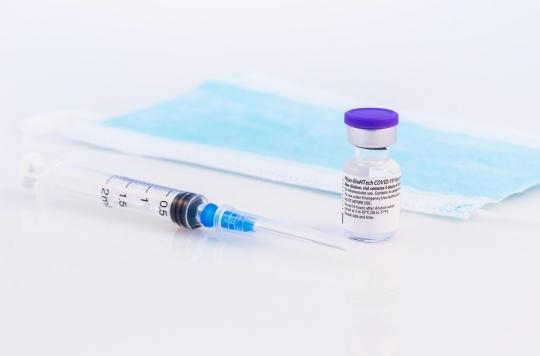The National Medicines Agency announced on Friday April 30 that it had detected five cases of myocarditis in patients who received a dose of the Pfizer/BioNTech vaccine. For the time being, no proven link has been established between this benign inflammation of the heart muscle and the serum.

- According to the ANSM, 5 cases of myocarditis, a benign inflammation of the heart muscle, have been detected in France in patients who received the Pfizer/BioNTech vaccine.
- For the time being, however, no formal link has been established with the serum.
After the AstraZeneca vaccine, suspected of having caused cases of thrombosis, it is the turn of the serum developed by Pfizer/BioNTech to be subject to special monitoring.
In its update dated Friday April 30, the National Medicines Safety Agency (ANSM) announced having identified five cases of myocarditis in France in people who received a dose of the Pfizer/BioNTech vaccine. This inflammation of the heart muscle had already been reported in Israel in 62 young men and women who received a second dose of the Comirnaty vaccine, out of 5 million vaccinated. “The available data do not provide, at this stage, enough elements to conclude on a role of the vaccine, but nevertheless constitute a potential signal”specifies the health agency.
Myocarditis, an often benign inflammation
What is myocarditis? It is an inflammation of the myocardium, the heart muscle. Often of infectious origin, myocarditis is asymptomatic and benign in the majority of cases. However, it must be subject to medical supervision to prevent the risk of serious cardiovascular complications.
In the event of myocarditis, certain symptoms may appear, often similar to those of the flu: fatigue, generalized weakness, fever and headache. In more severe cases, chest pain, arrhythmia, palpitations or difficulty breathing may be seen.
A still favorable risk/benefit balance
Despite these reported cases of myocarditis, the ANSM wants to be reassuring. Since the start of the vaccination campaign, 16,030 cases of adverse effects have been analyzed by the regional pharmacovigilance centers (CRPV). “The majority of adverse effects are expected and not serious” such as pain at the injection site or headaches, specifies the ANSM. “These adverse effects do not call into question the benefit/risk ratio of the vaccine” but will nevertheless “subject to specific monitoring and will be shared at European level” with the European Medicines Agency (EMA).
In total, as of April 22, 2021, more than 13,660,000 doses have been carried out in France, according to the ANSM.
.

















